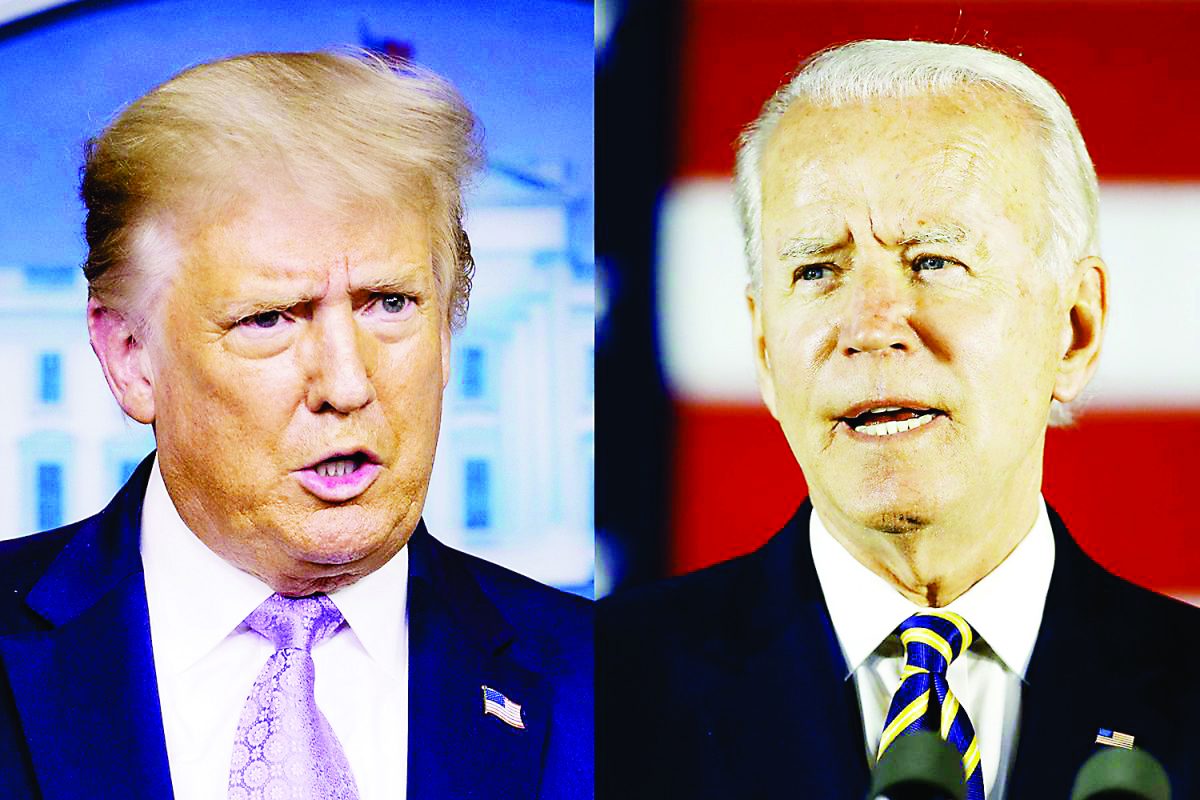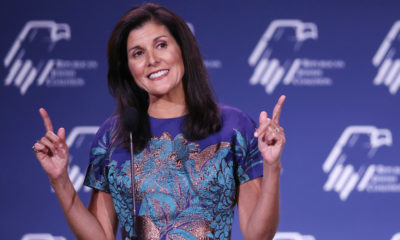
Featured Item

US Saffers back Biden in “vote of their lives”
Published
3 years agoon
“This is the existential election,” says Elan Burman, one of numerous South African Jewish immigrants across the United States who describe an atmosphere of fear, anger, and division ahead of the presidential election on 3 November. They hope for a better America based on values they hold dear.
Burman has lived in the US “for a total of 11 years, off and on” and currently lives in the suburbs of Washington DC, which he refers to as “the heart of the political morass”. Where he lives, “Biden/Harris [presidential candidate Joe Biden and running mate Kamala Harris] signs are everywhere. There is palpable optimism and a sense of incredible anxiety – the entire electorate realises this is probably the most consequential election in a generation. 2020 will define the very fabric of American society. The ghosts of 2016 loom large.”
Avi Perpinyal, who has lived in Chicago for nine years, says, “Regardless of affiliation, people see this as being the most important and consequential vote of their lives.”
Hylton Wener, who has lived in New Jersey for 14 years, says, “People are nervous. They fear some sort of ‘civil war’ especially if [President Donald] Trump loses. There is also the fear, as ratified by Trump himself, that he has no intention of accepting the election result if he loses.”
Liat Rabinowitz, who has lived in New York City for 18 years, says, “It’s truly a challenging and tense time. The country feels divided, frustrated, and in many ways angry. I think America is really hurting and in a dark place. We are in the midst of a chaotic moment in American history, and the stakes are tremendously high.”
Burman says he will cast his ballot for the Biden/Harris campaign. “I have little doubt Biden and Harris will win the popular vote, but as has become evident too many times in recent years, this doesn’t guarantee the Electoral College and the presidency,” Burman says. “For a country that has touted itself as a paragon of democratic virtue, there are a lot of shenanigans that go into winning an election that though arguably legal, disenfranchise voters and discredit the notion of one person, one vote.”
He says there are numerous issues at play in this election. “Should the US pursue an isolationist ‘America-first’ approach, or does it have a role to play in promoting and supporting progressive ideas throughout the world? Should the country pursue hardline capitalist policies, or ought the wealthiest country on earth do a better job in caring for its least fortunate as a matter of policy? Should a country be driven by science or populist sentiment? The fact that climate change is even being debated here alarms me no end,” says Burman.
“It’s imperative that the South African Jewish community recognise the growing tide of white supremacy in the US, and what this means for the Jewish community locally and globally,” he says. “On most accounts, the most generous reading is that Trump has done nothing to stop the scourge, while others contend that he is actively fuelling these supremacist flames by appealing to raw nationalism.”
Wener says he will also vote for Biden/Harris. “Although the country is divided, the hope is that if more people come out to vote, change can happen. I also believe that many centrist voters will swing against Trump. Many of them are voting for anyone but Trump.
“South African Jews need to understand that this election shouldn’t be won on one decision, to move the US embassy to Jerusalem,” says Wener. “Trump is an egocentric racist who is tearing the fabric of America. His strong-arm tactics, blatant disregard for science, and belittling of anyone who doesn’t agree with him isn’t an example for the rest of the world, especially our children.”
For Wener, the president’s tweet saying, “Don’t be afraid of COVID” is personal, as he lost his father to the pandemic. “In the US alone, more than 225 000 have died from coronavirus. His constant downplaying of a global pandemic is a slap in the face for those that have died, as well as their families left behind to pick up the pieces.”
Paul Wayburne, who has lived in the US since 2016 and resides in California, will also vote for Biden/Harris. He notes, “This election isn’t only about the president and vice-president. We are voting for a city mayor, city council members, a representative in congress, members of public-school boards, and proposed laws.
“I worry about the far left of the democratic party, which, unfortunately, is getting stronger. However, I can’t vote for Trump, who continues to minimise the danger of COVID-19. He failed to act in a manner that would have mitigated its effect on America, and continues to act irresponsibly by holding mass rallies and putting the lives of US citizens at risk,” Wayburne says.
“Most of all, the president should unite Americans. Trump doesn’t even try. He doesn’t behave with civility, and embarrasses our country. His character and behaviour is enough for me write him off as a candidate. He’s a bully, and a bad example for our children. People are tired of the hate and division. They want a president and government that won’t cause our blood pressure to rise whenever we turn on the television.”
Perpinyal says he will also vote for Biden/Harris, and he thinks they will win. “As polarised as this country is, I think the majority of folk understand that Trump’s presidency has been, on the whole, detrimental to our health, democracy, climate, and image abroad. We all lose if the world becomes further divided, and democratic values continue to erode.”
He has a close group of Israeli expatriate friends who, he says, “were fierce Trumpists until just recently. While they think Trump has been ‘good for Israel’, they now realise that the rest of his actions are egregious enough to call it quits. One friend said that the deadly consequence of his COVID-19 response was simply unforgivable.”
Other South African expatriates in the US are experiencing a similar shift. Cyril Waynik, who has lived in the US for 58 years, “voted for Trump initially because I felt politicians on both sides were so entrenched in their ideology that little was ever accomplished and that someone in the business world would get things done. Trump was very also pro-Israel. My reason for not voting for him this time is his ego and stupidly anti-presidential manner.”
For Wayburne, the stakes in this election couldn’t be higher. “[It’s about] the future of America as a democratic state and global security,” he says.










